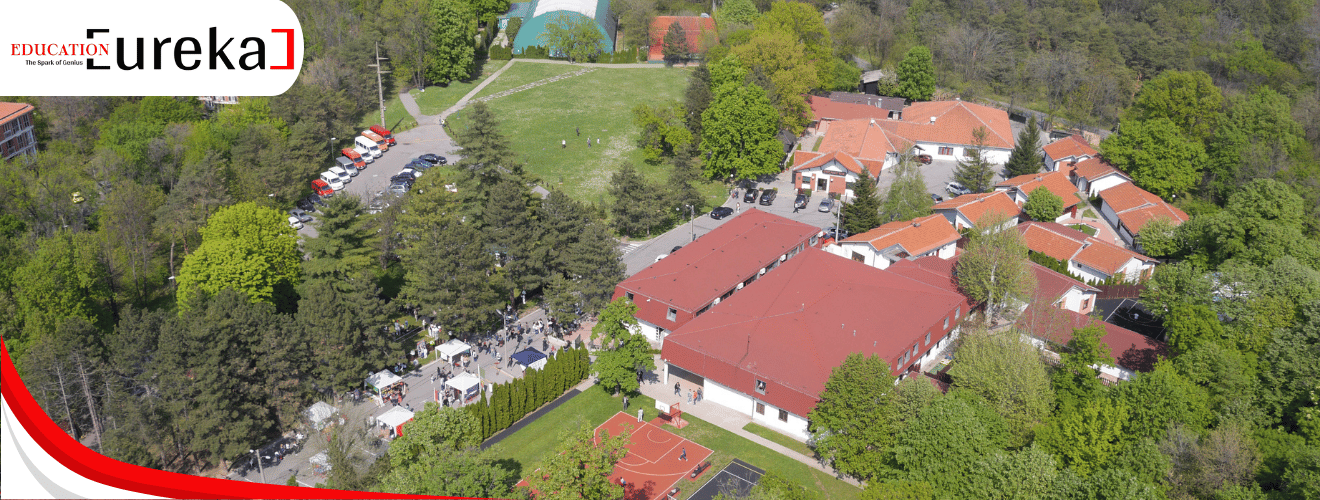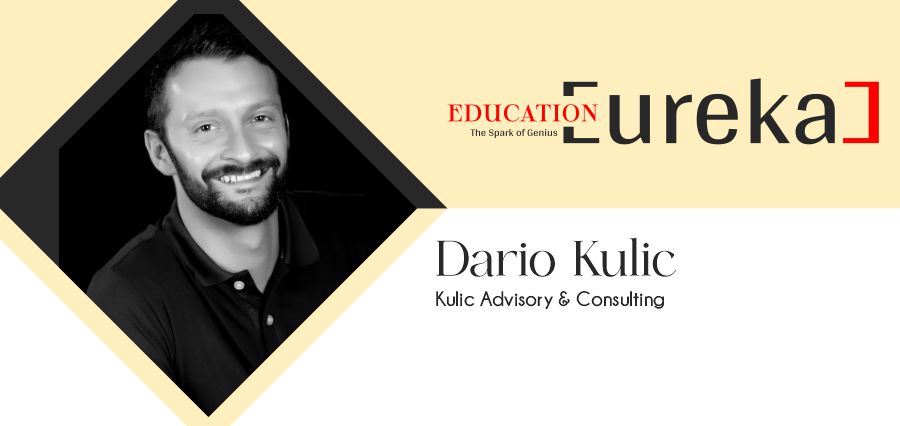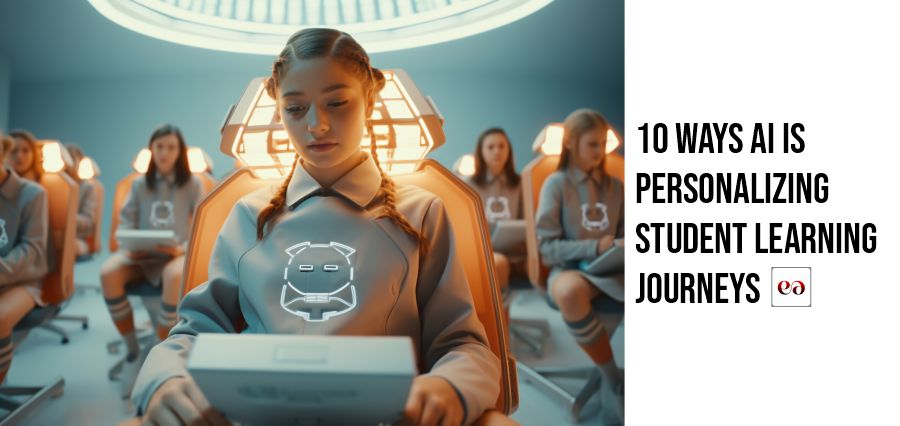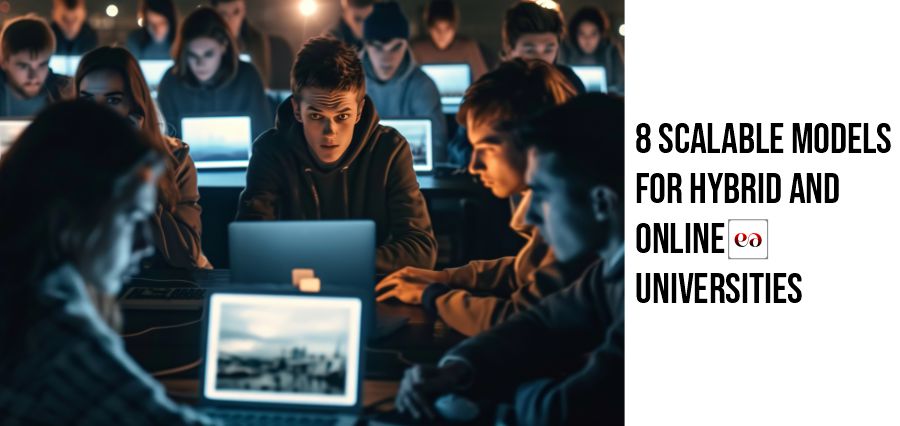Education Beyond Borders: Cultivating Global Minds at Ruđer Bošković School

Education is not the filling of a pail, but the lighting of a fire. This challenge to ignite curiosity, creativity, and critical thinking lies at the heart of Ruđer Bošković School. Nestled in the peaceful, green Košutnjak area of Belgrade, this private international school offers a nurturing environment where learning extends far beyond textbooks.
Ruđer Bošković School serves students from preschool through high school, embracing the full International Baccalaureate (IB) continuum, Primary Years Programme (PYP), Middle Years Programme (MYP), and Diploma Programme (DP). Since 2006, it has been certified both by the Serbian Ministry of Education, Science, and Technological Development and the International Baccalaureate Organization, ensuring a blend of rigorous local and international standards.
The school’s commitment to fostering well-rounded individuals is reflected in its vibrant campus life. The tranquil surroundings encourage not only academic excellence but also promote physical health and mental well-being through diverse sports and lifestyle activities. Instruction in English prepares students to communicate confidently on a global stage, while the integration of the Serbian national curriculum ensures that local culture and knowledge remain an essential part of the educational journey.
Ruđer Bošković School stands out as a unique private IB continuum institution in Belgrade, catering to both local families and an expanding expatriate community. It offers more than education, it builds global citizens equipped with the skills, values, and mindset to thrive in an interconnected world. Here, the fire of learning is kindled, setting students on a lifelong path of discovery and growth.
Blending National and International Education for a Holistic Learning Journey
The school successfully merges the Serbian national curriculum with renowned international programs such as Cambridge and the International Baccalaureate (IB) to craft a seamless educational experience. This is accomplished through meticulous curriculum alignment, especially evident in the Primary and Middle Years Programmes, where a distinctive curriculum is offered.
As students advance to the Diploma Programme years, a Dual Curriculum Pathway is introduced. This allows the school to run both the Serbian national curriculum and international curricula side by side, giving students the freedom to select or switch between them based on their academic ambitions and language skills. This approach promotes flexibility and personalised education to suit individual needs.
Additionally, the school has opened opportunities for national students to engage with select Diploma Programme subjects and assessments through IB Course Categories, enabling more students to benefit from the IB Diploma’s advantages.
Overall, this thoughtful integration fosters a smooth progression through bilingual education in early years, embraces a student-centered ethos, and nurtures both a strong national identity and a sense of global citizenship.
Managing Education with a Dual Mandate
A unique journey unfolded when one of the founders of Ruđer Bošković School, Mr. Mladen Šarčević, was appointed Minister of Education in Serbia in 2016. Deeply passionate about the International Baccalaureate (IB) Programme, he championed the introduction of the IB Diploma Programme across several state schools in Serbia, with government funding backing this transformative move. This initiative marked a pivotal moment in the country’s education system, paving the way for greater international integration.
Ruđer Bošković School has since remained at the forefront of educational innovation in the region. By balancing authorization from the Serbian Ministry of Education with the delivery of globally recognized IB programmes, the Primary Years Programme (PYP), Middle Years Programme (MYP), and Diploma Programme (DP), the school faces the distinctive challenge of harmonizing national standards with international excellence. This dual mandate creates a fertile ground for progressive teaching approaches, enabling students to thrive across diverse disciplines while preparing them for a global future.
Transforming Education Through IB Integration
The implementation of the International Baccalaureate Primary Years Programme (PYP) and Middle Years Programme (MYP) at Ruđer Bošković School marked a significant transformation driven by comprehensive teacher training, curriculum realignment, and a commitment to student-centered learning. This process fostered a vibrant educational environment focused not only on academic excellence but also on personal development, global awareness, and the cultivation of lifelong learning skills.
The school meticulously mapped the existing Serbian national curriculum to align with IB standards, ensuring compliance with both frameworks. Educators designed Units of Inquiry for the PYP and Interdisciplinary Units for the MYP that emphasize conceptual understanding, cross-disciplinary connections, and practical application in real-world contexts. Assessment methods were overhauled to include formative feedback, student self-reflection, and criterion-based evaluation, reflecting the core IB philosophy.
A key shift involved adopting constructivist, inquiry-based teaching strategies. Teachers moved away from traditional lecturing to become facilitators of student-led inquiry and exploration. Collaborative planning sessions became integral, promoting interdisciplinary teamwork and mutual support among faculty members.
The fusion of the IB curriculum with national requirements enriched the learning experience, enhancing complexity and interconnectedness without compromising academic rigor. Additionally, this transition sparked increased parental involvement through dedicated workshops and presentations that explained the IB’s values and methodologies, further strengthening the school community.
Living the Mission
At the heart of every lesson, event, and initiative lies a mission, to nurture honourable, principled, knowledgeable, and compassionate individuals who are prepared to contribute meaningfully to both their local communities and the wider world.
This commitment is not confined to words on a wall. It takes life in everyday classroom practices and a rich array of extracurricular activities. Teachers work collaboratively to help students understand both local and global contexts in meaningful ways. Field trips, museum visits, cinema outings, and humanitarian activities are just some of the experiences that deepen students’ awareness of the world around them, both natural and social.
Community involvement plays a significant role. Students participate in book fairs where donations are sent to a shelter for the homeless in Belgrade, and organize bake sales to support animal shelters. Sports tournaments and musical performances offer students the chance to lead, express themselves, and build lasting values of teamwork and empathy.
The school also fosters partnerships with other educational institutions, local shelters, and specialist schools serving children with developmental challenges. These collaborations encourage students and staff alike to give back and learn from the wider community.
On campus, students benefit from regular guest lectures on a wide range of topics—from university preparation and career exploration to emerging discoveries in science. Health and wellbeing are also priorities, with workshops led by professionals including gynaecologists, psychologists, authors, and sociologists.
Across all these activities, the mission is not just spoken, it’s lived, shared, and celebrated through real-world action.
Elevating Learning Through Class Size Strategy
Ruđer Bošković School takes a deliberate and strategic approach to class size management, placing student engagement and learning outcomes at the forefront of its educational model. Rather than simply filling seats, the school carefully regulates its annual student intake in alignment with available resources and teaching capacity. This selective admissions process ensures that classrooms remain small, focused, and conducive to meaningful learning.
In key subjects like languages, mathematics, digital design, and the sciences, students are further divided into smaller working groups. This allows for increased individual attention and tailored instruction, giving teachers the flexibility to address each student’s unique learning style and pace.
To support diverse academic needs, the school’s timetable is designed with flexibility in mind. Advanced learners and those requiring additional support are grouped according to their academic progress, without disrupting the balance of the overall classroom environment.
A consistently low student-to-teacher ratio is maintained by recruiting a sufficient number of qualified educators. This ensures that no teacher is overburdened and that every student receives the attention they deserve. Through this thoughtful structuring, Ruđer Bošković School creates an environment where students are not just taught, but truly understood.
Nurturing Global Citizens Through Dialogue, Debate, and Action
Fostering a sense of global citizenship and community service is woven deeply into the culture at Rudjer. A prime example of this commitment is the long-standing student-led event, “International Days.” This annual conference is more than just a school tradition—it’s a regional platform that brings together young minds from across the Balkans to engage in thoughtful debate and meaningful dialogue.
Originally centered around economic issues, the scope of “International Days” has expanded over the years to cover pressing topics in politics, philosophy, history, and social challenges that resonate across borders. Students from IB schools in cities like Banja Luka, Skopje, Mostar, Sarajevo, Ljubljana, and Sofia come together each year to share ideas and debate themes such as The Downturn of the West – Clash of the East, When Diversity Becomes Inequality, and Green Cities – Urban Oases. These discussions not only cultivate critical thinking but also foster mutual respect and understanding among peers from different cultural backgrounds.
In addition to hosting this enriching event, teachers play a key role in encouraging students to participate in international competitions, such as the International Philosophy Olympiad. These opportunities allow students to test their knowledge and broaden their horizons, strengthening their identity as informed, open-minded global citizens.
Whether through spirited debates or international contests, students are continually empowered to engage with the world beyond their classrooms, carrying forward values of empathy, collaboration, and active global responsibility.
Integrating Technology into Learning
Modern teaching methods and educational technology are thoughtfully integrated across the primary and secondary levels at Rudjer, ensuring a meaningful balance between digital literacy and essential cognitive skills like critical thinking and general literacy.
Each classroom is equipped with both a smartboard and a traditional whiteboard, allowing teachers to blend technology with more conventional tools. Educators go beyond textbooks by curating a variety of digital and offline resources tailored to their subject areas, enriching the learning experience for every student.
In the Primary Years Programme (PYP), students begin using personal tablets in the classroom from Grade 3, always under supervision. Teachers guide them in exploring digital libraries filled with e-books, which they use to support project research and cultivate reading habits for pleasure.
As students transition into the Middle Years Programme, they begin interacting with a dedicated online platform that hosts lesson materials, assignments, and assessment schedules. Students submit their work digitally and receive timely feedback from teachers through this portal. Parents are granted access to the platform as well, enabling them to stay informed about their child’s academic progress, upcoming tasks, and teacher comments on submitted work.
Academic honesty is actively taught and reinforced, both through direct instruction and with the help of the platform’s built-in plagiarism detection tools, which align with the school’s integrity standards.
By the time students reach high school, their research capabilities are further expanded. They gain access to more advanced academic databases like EBSCOhost, empowering them to conduct in-depth research for major projects and laying the groundwork for higher education.
At Rudjer, technology is not an add-on, it’s an embedded part of a carefully structured academic journey, designed to empower students while keeping their development grounded in thoughtful, ethical learning.
Beyond the Classroom
Extracurricular activities are seen not as add-ons, but as essential pillars of student life at Ruđer Bošković School. Every aspect of the school schedule is thoughtfully designed to weave in sports, arts, cultural exposure, and real-world engagement, ensuring students develop not only academically, but socially, emotionally, and creatively.
A typical week is rich with variety. Students might find themselves competing in a sports tournament, attending a theatre performance, exploring a museum, or heading out on a development-focused field trip. These experiences encourage students to explore new interests while deepening bonds with peers, and often turn routine weeks into unforgettable ones.
Beyond visits and outings, the school also hosts its own signature events. The annual Ruđer Fest and “Humanost na delu” (“Kindness in Action”) initiatives invite students to take the lead in planning, organizing, and delivering meaningful experiences for their community. These events are platforms where creativity meets purpose, with students raising funds for local charities while learning about teamwork and civic responsibility.
Another highlight in the school’s calendar is the Ahmed Isak Memorial Sports Tournament. This event welcomes high schoolers from across the area to Ruđer Bošković’s own sports fields for friendly yet competitive games, promoting sportsmanship, unity, and school spirit.
One of the most anticipated experiences for every student is the annual school trip. Spanning five to six days, these excursions take students and their teachers across Serbia and Europe, offering an immersive opportunity to explore new places while building deeper relationships outside the classroom setting.
Thanks to its location near the tranquil woodlands and lake Ada Ciganlija, the school regularly organizes outdoor sports days. Activities like cycling, volleyball, tennis, and water skiing bring the community together in a refreshing and energizing way. When winter sets in, students switch gears with indoor events like bowling days and team sports, taking full advantage of the school’s three indoor sports fields.
Through all these activities, Ruđer Bošković School aims to shape well-rounded individuals, students who are not only academically capable, but also culturally aware, socially conscious, and personally fulfilled.
Guiding Students from National to International Curricula
Supporting students through the transition from the national curriculum to international programmes, especially during crucial academic years, is a thoughtfully designed process at the school.
When students enter Grade 11, they are introduced to the structure, expectations, and curriculum of the IB Diploma Programme (DP) through an orientation session led by the DP Coordinator. This is complemented by a dedicated session for parents, where the DP Coordinator offers an in-depth overview of the programme, helping families better understand what lies ahead.
A broad range of subjects from all six DP groups is available, ensuring students have both flexibility and the ability to meet diverse university entry requirements. The school maintains a favourable subject-to-student ratio of approximately 25 to 30, enabling more personalized guidance. For those who prefer to continue within the national curriculum framework, the school offers the DP in course category. This allows students to take individual DP subjects without enrolling in the full programme, giving them a valuable taste of international education.
In addition to these academic structures, the school holds a “Supporting Transition” presentation series. During these sessions, subject teachers from each DP group walk students through course content, assessment methods, and expectations, helping them make informed choices and prepare for the challenges ahead.
Recognizing the value of peer insight, the school also hosts an annual talk featuring a former DP student. This session offers current Grade 11 students a candid, first-hand account of what the programme entails, the real challenges faced, and how the experience shaped their university journey.
This multi-layered support system ensures that students feel confident and prepared as they step into an international curriculum, making the shift a smooth and empowering experience.
Nurturing Educators for a Global Tomorrow
At Ruđer Bošković School, educators benefit from a rich spectrum of professional development opportunities that are globally aligned and designed to keep them reflective, skilled, and future-ready. These initiatives go beyond standard training, fostering a culture of curiosity, innovation, and continuous improvement in teaching practice.
Professional growth is deeply embedded in the school’s culture. From IB workshops to targeted webinars, teachers are supported with both in-house and external learning experiences. Collaboration is actively encouraged through regular knowledge-sharing meetings and job shadowing, creating a space for educators to learn from one another’s strengths.
A recent highlight was the visit of colleagues from the Danila Kumar IB School in Slovenia, which served as a valuable exchange of insights and best practices. These opportunities ensure that educators not only stay abreast of international standards and pedagogical innovation but also help cultivate a vibrant, forward-thinking classroom experience for every student.
Measuring True Educational Success
Success at Ruđer Bošković School isn’t defined by grades alone. The institution takes a well-rounded and human-focused approach to evaluating its educational programmes, considering not just academic achievement but also student well-being and personal growth.
One of the key indicators of programme effectiveness is the success of its graduates, particularly their acceptance into prestigious universities around the world. The school actively tracks where its alumni go, using this data to assess the strength of its academic foundation.
Each year, the school conducts internal evaluations focused on ethos and student support. Feedback is gathered through carefully designed surveys targeting students, parents, and teachers. These aren’t just box-checking exercises, the findings directly shape developmental planning and school policy.
Students are also invited annually to reflect on their experiences, particularly the academic and emotional support they receive from teachers. Parents, too, are regularly encouraged to share their thoughts on everything from academic programmes to safety and logistics.
What makes this process impactful is that feedback doesn’t sit in a report, it leads to action. For instance, when survey results revealed a need for better mechanisms to support students facing challenges, the school responded by creating and implementing a new support system. This change became a formal part of the school’s Well-Being Policy.
By listening closely to its community and acting on what it hears, Ruđer Bošković School ensures that success is measured not only by academic milestones but also by how supported and empowered students feel throughout their journey.
Discover more insightful articles on education trends, exclusive interviews, in-depth magazines, and the latest educational news—explore now on the Education Eureka website.
New Post
-
 12 Global Procurement Trends Every Leader Should Track
12 Global Procurement Trends Every Leader Should Track -
15 Tools Powering Modern GlobalProcurement Teams
-
 Dario Kulić: Improving Procurement Performance Through Human-Centered Efficiency
Dario Kulić: Improving Procurement Performance Through Human-Centered Efficiency -
 10 Ways AI is Personalizing Student Learning Journeys
10 Ways AI is Personalizing Student Learning Journeys -
 8 Scalable Models for Hybrid And Online Universities
8 Scalable Models for Hybrid And Online Universities -
Professor Selva Pankaj: Leading Regent Global’s Mission to Transform Education


